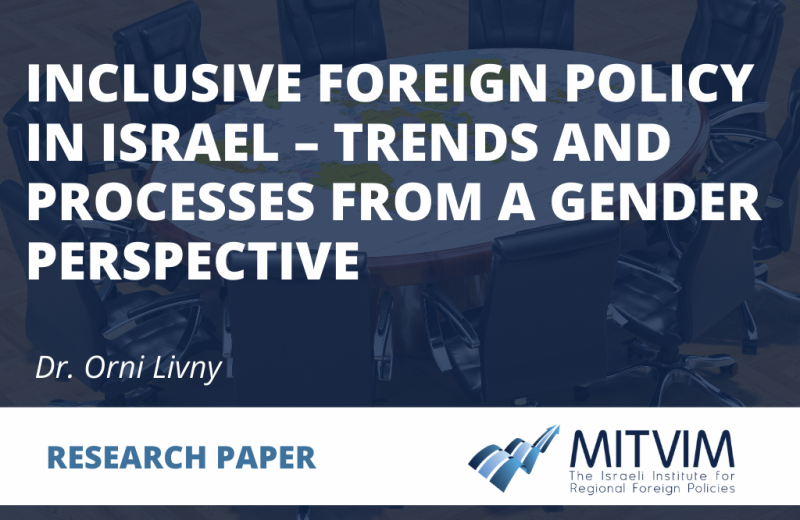
Gender equality and women’s rights are consensual values across parties and political agendas in Western democracies, of which Israel has always been proud to be a part. However, Israel’s 37th government, which is the most religious and conservative in the country’s history, set Israel back on the gender issue. Yet, the new government’s weakening of the female voice can also be an opportunity for change: The struggle for adequate representation of women in decision-making processes, which previously only troubled the limited communities of women’s organizations, became a core issue in the public discourse and expanded the awareness that gender equality and women’s rights are fundamental values of democracy. It is not a struggle only of women nor of one political camp or another, but a central part of liberal democracy.
This policy paper, written in collaboration with the Friedrich Ebert Foundation (FES), examines the concepts of inclusive and feminist foreign policy and seeks to suggest elements of these concepts that Israeli policymakers may adopt, whether in the short term or the long run.


